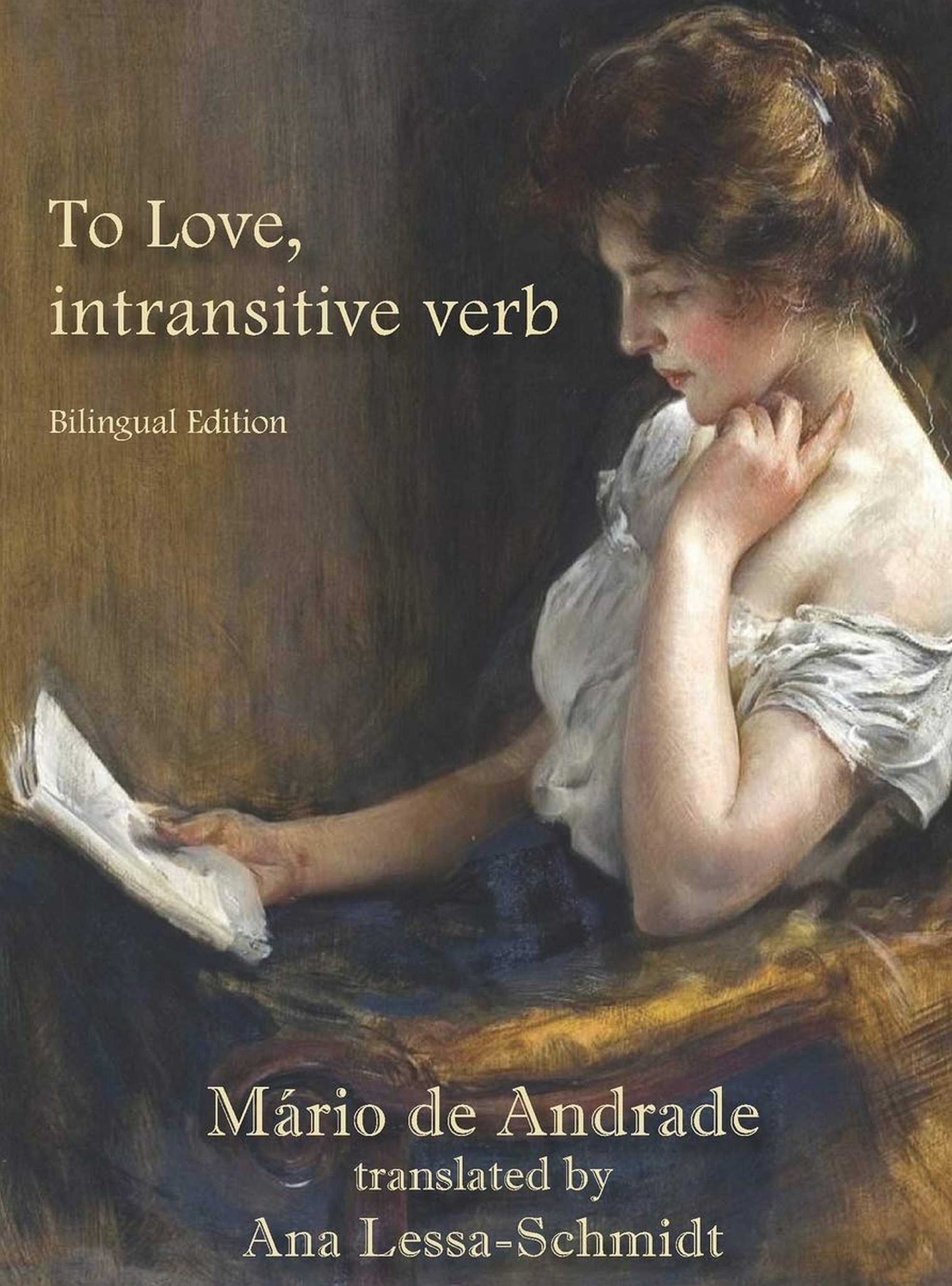by GLEN ALLAN CHENEY

Ana Lessa-Schmidt’s translation of Mário de Andrade’s modernist classic, To Love, Intransitive Verb, is a remarkable English-language rendition of Andrade’s colloquial Portuguese and impressionistic narrative.
Andrade led Brazil’s literary shift into modernism that started with the Semana de Arte Moderna of 1922. Writers, poets, musicians, and artists blossomed quite unexpectedly to launch Brazil’s liberation from historical, social, ethnic, and linguistic repressions.
Initial critical response was quite negative, but, in time, intellectuals came to accept the brave new world of cultural and artistic independence.
In To Love, Andrade uses an unusual—or even lurid—love story to portray several ongoing socioeconomic upheavals. One was the beginning of the nation’s growth from a rural, agricultural economy to a more urban culture.
Another was the nation’s self-assertion as intellectually independent from Europe. Yet another was the hypocrisy of upper class values and pretensions, a holdover from the traditions of Portugal.
As the story goes, a nouveau riche family in São Paulo hires a governess/teacher from Germany to care for three children. She arrived with a certain Old World intellectuality that exceeded that of the Costa family.
Little did she suspect that she was also expected to introduce the oldest child, Carlos, 15, to the basic pleasures of sex. Though she’s shocked at the notion, the two of them fall into something a little like love.
Andrade tells the tale in a shockingly colloquial language, a sharp break from the formal, stilted Portuguese of classical literature. The story is assembled from flashbacks, interior monologues, stark scenes, digressions, and clipped conversations that reflected the way Portuguese was being spoken informally in Brazil. Translator Lessa-Schmidt deserves kudos for her ability to translate this local vernacular into a semblance in English.
The narrative voice of the story does not shy from bringing out all the hypocrisy in a well-to-do “good family.” Though their home library is replete with the best of books, no one reads them.
Though the Costas consider themselves morally superior to the hoi poloi, the man of the house dallies with prostitutes and expects a governess to dally with his adolescent son.
Though the two girls in the family are mastering Mozart on the piano, their mother is unimpressed and bothered by the cost of the lessons. Mr. Costa is a wealthy businessman, but he attempts to disguise his mixed-race heritage. As if in recognition of Brazil’s recent emancipation of enslaved people, the family has an informally adopted daughter who works as servant.
To Love, Intransitive Verb is one of several bilingual books published by New London Librarium, a premier publisher of books involving the literature, culture, history, and issues of Brazil, including translations of Machado de Assis, Rubem Alves, Monteiro Lobato, and João do Rio.
Brazzil for more